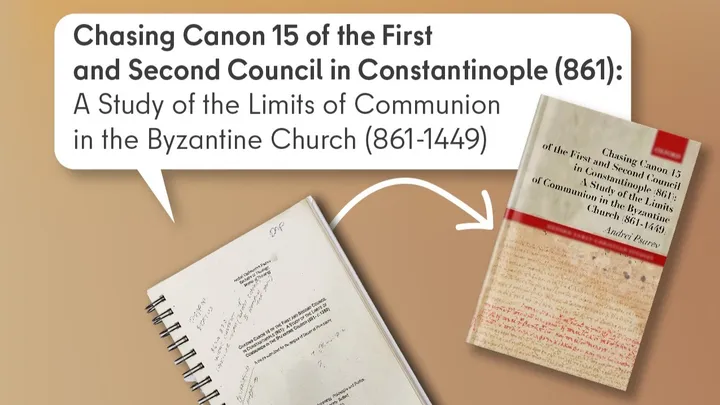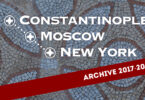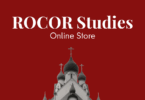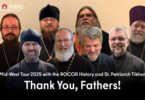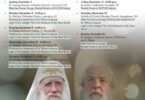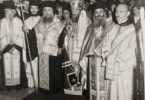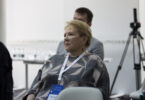This website has existed since 2008. Next year I enrolled in a Ph.D. program in Byzantine History at Queen’s University Belfast. There are links to at the bottom of this post that give some idea of the stages of the project.
Right now, I am beginning my major project for the coming year: revising my Ph.D. dissertation to produce a book. The title of my thesis, and the provisional title of the book, is Chasing Canon 15 of the First and Second Council in Constantinople (861): A Study of the Limits of Communion in the Byzantine Church (861- c.1350).
The Orthodox Church is hierarchical. The degree to which laypeople and clergy may participate in a decision-making process may vary from one local church to another, but the general bishop-centered structure remains intact everywhere.
Priests are the “hands” of their bishops. The fact that the authority has been delegated to clergy is seen atmultiple points during the daily cycle of liturgical services – more than ten times a day – in the commemoration of a ruling bishop by a priest or a deacon.
When bishops, clergy, and laity are “on the same page” regarding issues of belief and contemporary reality, there are no grounds for conflict. But what should we do when a bishop, a metropolitan, or even a patriarch preaches something controversial?
To address such a situation, the Council in Constantinople in 861 adopted Canons 13, 14, and most importantly Canon 15. All of them refer to liturgical commemoration, of the kind mentioned above, and Canon 15 permits interruption of such commemoration when a superior hierarch expounds teaching which promotes something “that has been condemned by the holy councils or the Fathers.”
This last clarification served as an inroad to my research. What sort of teaching might a bishop put forward that would release a subordinate from obedience to him? Could it be a doctrinal idiosyncrasy, an ideological position incompatible with established doctrine, or an issue of morality?
Canon 15 belongs to the corpus canonum of the entire Orthodox Church and is a highly authoritative piece of ecclesiastical legislation.
This canon has been constantly evoked, up to the present time, as a basis to use “an emergency brake.” For example, in the Russian Church, members referred to Canon 15 when Patriarch Kirill held a meeting with Pope Francis in Havana in 2016, and again in 2024 when the leader of the Russian Church spoke about a “Holy War” in Ukraine, while this May Estonian Interior Minister Lauri Läänemets called on Russian Orthodox people in his country to invoke Canon 15 and separate from Patriarch Kirill.
The thesis was written within the context of Byzantine Studies and will need some general adaptation to a wider audience to include members of ROCOR and of Orthodox Churches in general, for many of whom the central issue of Canon 15 has become a matter of contemporary concern. Further research will also be necessary, especially on recent invocations of Canon 15, but also to write an additional chapter on the Council of Ferrara and Florence in 1438–39. This Council addressed issues related to Canon 15, in the context of an attempt to reunite Christendom and especially to heal the breach between the Catholic Church and at what was called “the Greek Church”, that is, the Church of the Byzantine Empire. This study will provide a significant extra perspective at a point in time almost exactly halfway between the Councils of Constantinople of 861 and the present day.
To be able to complete this project, I need to fundraise $22,000. I have collected $9,610, but now need to raise the rest of the sum to be able to make ends meet for my family while I work this project.
You may learn about the theme of my dissertation and support this project here.
The publication of the book will signify that end of my Ph.D. process, which began in 2009.
Links
(2011) Instructor from Holy Trinity Seminary at Queen’s University Belfast
(2019) Deacon Andrei Psarev Has Completed His PhD in Belfast

